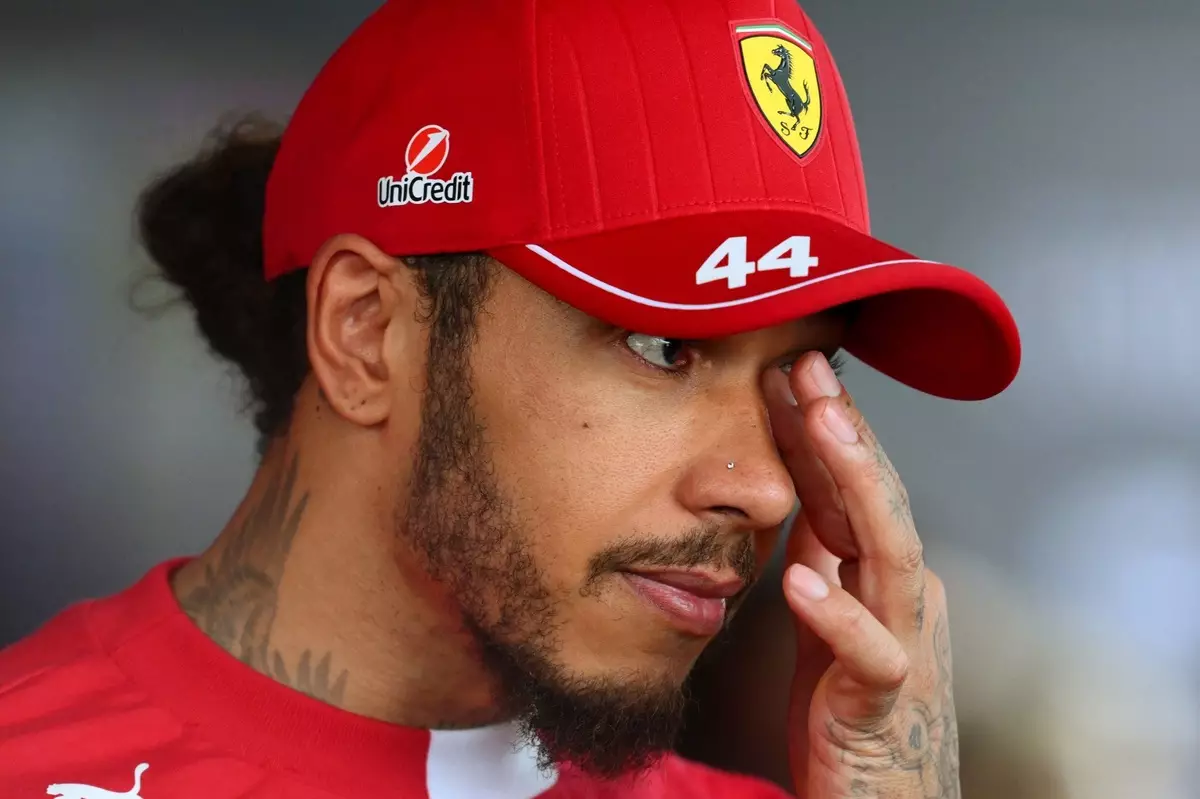Lewis Hamilton’s recent struggles at the Hungarian Grand Prix serve as a stark reminder of the relentless nature of Formula 1. Despite his illustrious seven-world championships, even the most elite drivers are not immune to setbacks. Hamilton’s frustrating outing, particularly his early exit in qualifying and the subsequent race-day performance, underscores the brutal competitiveness of the sport. It reveals not just technical issues or team missteps, but also the heavy burden of expectations. Fans, media, and even team personnel often forget that behind the helmet lies a human being prone to disappointment, self-doubt, and the urge to prove himself anew. Hamilton’s visible frustration, expressed in interviews and on the track, should not be dismissed as mere whining but recognized as a vital part of the relentless quest for excellence.
Understanding the Inner Fire of a Champion
Fred Vasseur’s words illuminate an often-overlooked truth: top athletes are driven by a demanding inner fire. Hamilton’s intensity, which sometimes manifests as harsh words or visible disappointment, underscores his unwavering commitment to greatness. The fact that Vasseur, despite the team’s overall performance issues, refrains from dampening Hamilton’s fire reflects a profound understanding—champions are fueled by their own dissatisfaction when falling short. Hamilton’s self-criticism is, in essence, a mirror of his ambition. To expect him to simply accept mediocrity or passively endure setbacks underestimates the power of that drive. Rather than discouraging him, adversity provides an opportunity for a reclamation of focus, sharpening his resolve to return stronger.
The Myth of Instant Recovery and the Power of Resilience
Some critics or casual observers might suggest Hamilton’s current form signals either the beginning of the end or a crisis of confidence. However, this overlooks the resilient nature of true champions. Hamilton has repeatedly demonstrated an ability to rebound from lows, leveraging setbacks as catalysts for growth. The recent poor performance reveals a learning moment, exposing areas where the team must improve or innovate. It’s tempting to interpret his frustration as a sign of fragility, but history shows him to be a master of resurgence. In Formula 1, patience and persistence are virtues that forge legends. Hamilton’s resilience—his capacity to turn despair into determination—is precisely what will shape his next chapter. Every setback fuels the fire that can propel him back to the pinnacle.
Leadership in Adversity: The Role of a Veteran Driver
In a sport dominated by cutting-edge technology and split-second decisions, the mental strength of a driver becomes paramount. Hamilton’s current struggles highlight the importance of leadership through adversity. Rather than retreat into silence or despair, Hamilton’s experience and mental toughness can serve as a guiding light for his team. It’s in moments like these that a veteran’s calm, strategic mindset is essential. Hamilton’s demands and perfectionism—often criticized—are ingredients that, when channeled correctly, can lead to breakthroughs. His dissatisfaction can be a catalyst for innovation and a rallying call for the team to elevate themselves. A driver’s ability to maintain focus amidst chaos not only influences his own performance but also inspires those around him to push harder.
The Future: Turning Frustration into Motivation
While the Hungarian GP was fraught with disappointment, it presents the kind of challenge that can ignite a renewed hunger for victory. Hamilton must reframe his setbacks not as failures but as stepping stones. His competitive spirit and will to win are undeniable. If he harnesses these qualities effectively, he can defy expectations and rekindle his quest for yet more greatness. History is filled with stories of athletes who faced similar rough patches—moments that, if approached correctly, became pivotal in their careers. The key lies in transforming frustration into motivation, in embracing the struggle as part of the journey rather than an endpoint. Hamilton’s legacy is not solely defined by his wins but also by his ability to rise after every fall with even greater intensity.
This crucible of hardship offers him a chance to reinforce why he’s considered one of the all-time greats. The road ahead demands resilience, relentless work ethic, and a refusal to accept defeat. When history looks back on Hamilton, it will not solely be the victories that matter but how he responded to adversity—how he crafted a comeback that inspired generations. His story is still being written, and if anyone can turn this chapter of frustration into a testament of indomitable will, it’s him.


Leave a Reply